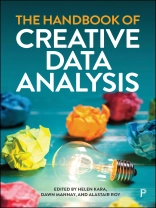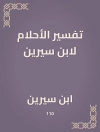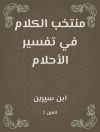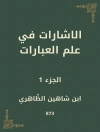Creative research methods for data generation have expanded over recent decades and researchers are eager to take a creative approach to data analysis.
It is challenging to bring creativity into data analysis while retaining a systematic, rigorous, and ethical approach. Written by experts in the field, this handbook addresses these challenges. The chapters adapt analytical techniques in creative ways for novice and expert researchers. Existing and novel methods from analysis of quantitative data to embodied, performative, visual, written, arts-based, and collaborative analysis are featured with case examples that are transferable across disciplines.
This collection offers a definitive practical guide to creative data analysis.
สารบัญ
1. Introduction – Dawn Mannay, Alastair Roy, and Helen Kara
Section 1: Creative Analysis of Quantitative Data
2. Five Survive Lockdown: Re-Visualising Survey Data as a Graphic Novella – Kate Carruthers Thomas
3. Visually Mapping the Interplay between Pandemic Interest Groups and ‘the Vulnerable’ in Newspaper Accounts, 2018–2022 – Stuart Neilson and Neil Kenny
4. Using Discourse Analysis to Inform Content Analysis: A Pragmatic, Mixed Methods Approach Exploring How the Headteacher Role is Articulated in Job Descriptions – Alexandra Morgan, Andrew James Davies, and Emmajane Milton
5. Word Clouds as Creative Data Analysis – What Can They Tell Us About Student Views of Learning Something New? – Louise Gascoine, Kate Wall, And Steve Higgins
Section 2: Creative Embodied Analysis
6. Analysing Creative Multimodal Data for a Scientific Audience – Jennifer S. Leigh, Jennifer R. Hiscock, Sarah Koops, Anna J. Mcconnell, Cally J.E. Haynes, Claudia Caltagirone, Marion Kieffer, Emily R. Draper, Anna G. Slater, Kristin M. Hutchins, Davita Watkins, Nathalie Busschaert, and Larissa K.S. Von Krbek
7. Object-Work as a Creative Approach to Data Analysis in Embodied Inquiry – Nicole Brown
8. A Composite Approach to Analysis for Embodied Methodology – Rachel Kurtz and Laura Mazzoli-Smith
Part 3: Creative Performative Analysis
9. Rewriting in Role: Inviting Readers through Imagination – Claire Coleman
10. A Mosaic of Siblings of Cystic Fibrosis: A Creative Dramaturgical Analysis – Amie Hodges
11. Theatrical Research-Based Performance: An Analytic Method Using Theatre in an Educational Context – David Duncan
Section 4: Creative Visual Analysis
12. Co-Creation of a Sensory Assemblage as Data Analysis – Melanie Roberts and Anne Collis
13. Creating Artworks From Data – Charlotte Barratt
14. Using Emoji As a Creative Tool for Data Analysis – Anuja Cabraal and Lauren Gawne
Section 5: Creative Written Analysis
15. I Poems and Polyvocality: Experiences of Using a Combined Qualitative Creative Analysis Technique to Strengthen the Voices of Research Participants and Aid Reflexivity – Jacqueline Dodding and Hazel Partington
16. Composite Narratives, Developing Characters: A Method of Creative Data Analysis in Developing Public Engagement Artefacts – Lauren White, Adam Carter, and Katherine Davies
17. Beyond the Brick Wall: Transdisciplinary and Creative Research through Scholarly Personal Narrative and Lilyology – Dawn Wink
Section 6: Creative Arts-Based Analysis
18. Slow Stitch: Reflexive Creative Analysis and Meaning Making – Naomi Clarke
19. The Analogue Journey Method – Karen Gray and Emma Lazenby
20. Using Creative Mapping Methods to Analyse Multimodal Data – Erin Roberts, Merryn Thomas, Karen Henwood, and Nick Pidgeon
Section 7: Existing Methods Adapted in Creative Ways
21. Embracing Creativity in Familiarisation – Louise Couceiro
22. How to Be Creative When Creativity is Policed – Shehr Bano Zaidi
23. Visual Grounded Theory: A New Way of Seeing, Knowing, and Constructing Theories Grounded in Data – Jacquie Ridge
24. But is it Professional? Pairing Creative Practice and Thematic Analysis to Illustrate Organisational Culture – Kyla Tully
Section 8: Analysis with Participants
25. Using Patient and Public Involvement and Engagement and Co-production to Enrich the Analysis, Interpretation, and Utilisation of Sexual Health Research – Mar Estupiñán Fdez. De Mesa, Melvina Woode Owusu, Makeda Gerressu, Gwenda Hughes, and Catherine H. Mercer
26. Creative Collaborative Data Analysis: Co-Constructing and Co-Analysing the Data Together – Jessica Mannion and the R&S (Relationships and Sexuality) Research Team
27. Perspective Narrative Analysis: Analysing Data Creatively within a Participatory Research Group – Chloe East, Feydakeen Smith, Iris, Zaynab Charafi, Zoe Fordham, Annie Champion, and Carys Jones
Part 9: Pushing The Boundaries
28. Analysing the Unspoken: Finding the Richness Created in Dialogue with People who Cannot Speak – Katherine Broomfield
29. Speculative A/R/Tography – Kathryn Coleman, Sarah Healy, Abbey Macdonald, and Peter J. Cook
30. Between Two Worlds: A Shared (Shamanic) Journey of Creative Qualitative Data Analysis and Researcher Identity – Karen Hammond and Nick Fuller
31. Conclusion – Alastair Roy, Dawn Mannay, and Helen Kara
เกี่ยวกับผู้แต่ง
Alistair Roy is Professor of Social Research at the University of Central Lancashire. .












